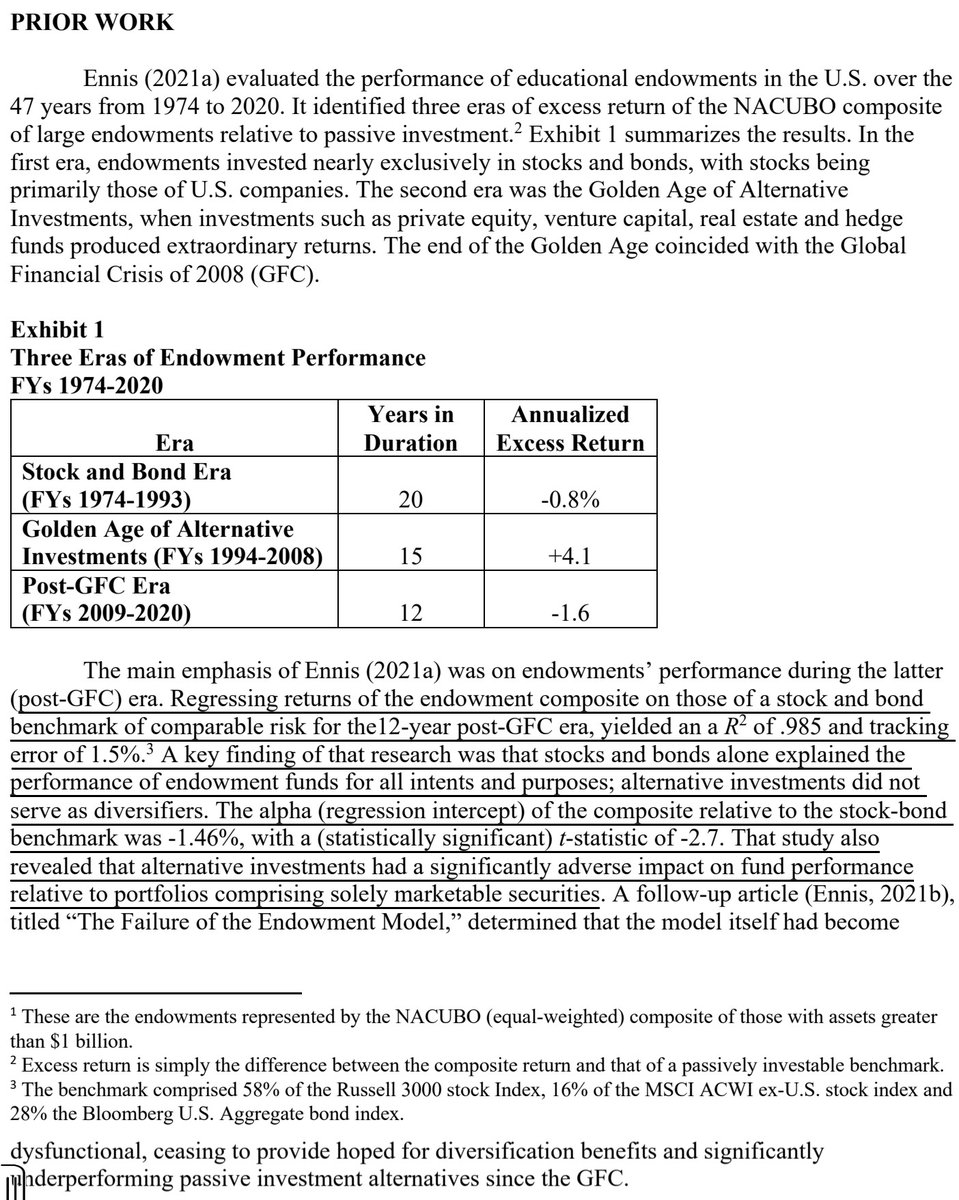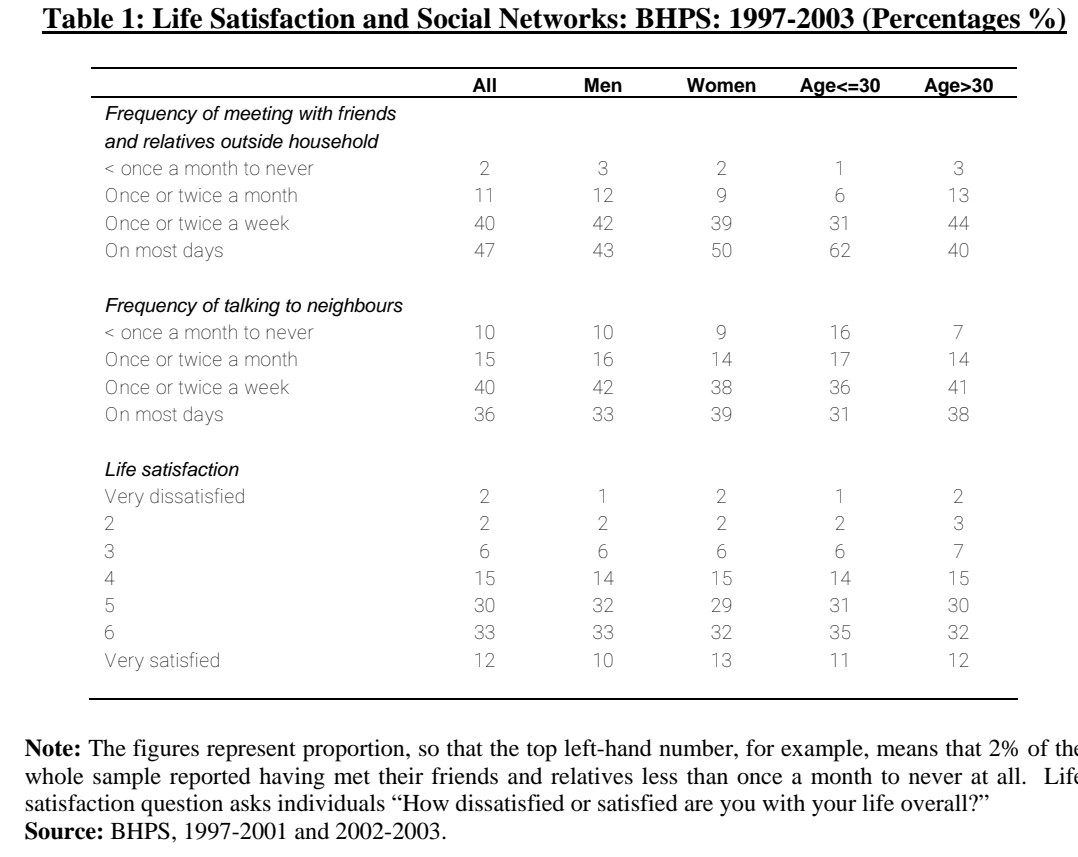
1/ A Wandering Mind is an Unhappy Mind (Killingsworth, Gilbert)
"A human mind is a wandering mind; a wandering mind is an unhappy mind. The ability to think about what is not presently happening is a cognitive achievement that comes at an emotional cost."
wjh-www.harvard.edu/~dtg/KILLINGSW…
"A human mind is a wandering mind; a wandering mind is an unhappy mind. The ability to think about what is not presently happening is a cognitive achievement that comes at an emotional cost."
wjh-www.harvard.edu/~dtg/KILLINGSW…

2/ " “Stimulus-independent thought” or “mind wandering” appears to be the brain’s default mode and allows people to learn, reason, and plan.
"Unfortunately, collecting real-time reports as people go about their daily lives is cumbersome and expensive.
"Unfortunately, collecting real-time reports as people go about their daily lives is cumbersome and expensive.
3/ "Such experience sampling has rarely been used to investigate the relationship between mind wandering and happiness and has always been limited to very small samples.
"We solved this problem by developing aWeb application for the iPhone that contacts people at random moments.
"We solved this problem by developing aWeb application for the iPhone that contacts people at random moments.
4/ "Our database currently contains nearly a quarter of a million samples from about 5000 people from 83 different countries who range in age from 18 to 88 and who collectively represent every one of 86 major occupational categories.
5/ "The question 'How are you feeling right now? was answered on a scale from very bad (0) to very good (100).
"The mind-wandering question 'Are you thinking about something other than what you're currently doing' could be answered four ways: {yes,no} * {pleasant,unpleasant}.
"The mind-wandering question 'Are you thinking about something other than what you're currently doing' could be answered four ways: {yes,no} * {pleasant,unpleasant}.
6/ "People’s minds wandered frequently regardless
of what they were doing. Mind wandering occurred in 46.9% of the samples and in at least 30% of the samples taken during every activity except making love. The frequency of mind wandering in our real world sample was considerably
of what they were doing. Mind wandering occurred in 46.9% of the samples and in at least 30% of the samples taken during every activity except making love. The frequency of mind wandering in our real world sample was considerably
7/ "higher than is typically seen in laboratory experiments. Surprisingly, the nature of people’s activities had only a modest impact on whether their minds wandered and had almost no impact on the pleasantness of the topics to which their minds wandered.
8/ "Multilevel regression revealed that people were less happy when their minds were wandering than when they were not [slope (b) = –8.79, P < 0.001], and this was true during all activities, including the least enjoyable.
9/ "Although people’s minds were more likely to wander to pleasant topics (42.5% of samples) than to unpleasant topics (26.5%) or neutral topics (31%), people were no happier when thinking about pleasant topics than about their current activity (b =–0.52, not significant)
10/ "and were unhappier when thinking about neutral (b = –7.2, P < 0.001) or unpleasant topics (b = –23.9, P < 0.001) than about their current activity.
"Time-lag analyses suggested that mind wandering was generally the cause, not merely the consequence, of unhappiness."
"Time-lag analyses suggested that mind wandering was generally the cause, not merely the consequence, of unhappiness."

11/ "What people were thinking was a better predictor of their happiness than was what they were doing. The nature of people’s activities explained 4.6% (3.2%) of the within-person (between-person) variance in happiness, but mind wandering explained 10.8% and 17.7%, respectively.
12/ "The variance explained by mind wandering was largely independent of the variance explained by the nature of activities, suggesting that the two were independent influences on happiness."
13/ More reading
Time Smart: How to Reclaim Your Time & Live a Happier Life
Putting a price tag on friends, relatives, & neighbors
If Money Doesn't Make You Happy, You Probably Aren't Spending It Right
Time Smart: How to Reclaim Your Time & Live a Happier Life
https://twitter.com/ReformedTrader/status/1475997738424696833
Putting a price tag on friends, relatives, & neighbors
https://twitter.com/ReformedTrader/status/1489121084595064834
If Money Doesn't Make You Happy, You Probably Aren't Spending It Right
https://twitter.com/ReformedTrader/status/1448828710908424195
• • •
Missing some Tweet in this thread? You can try to
force a refresh

























